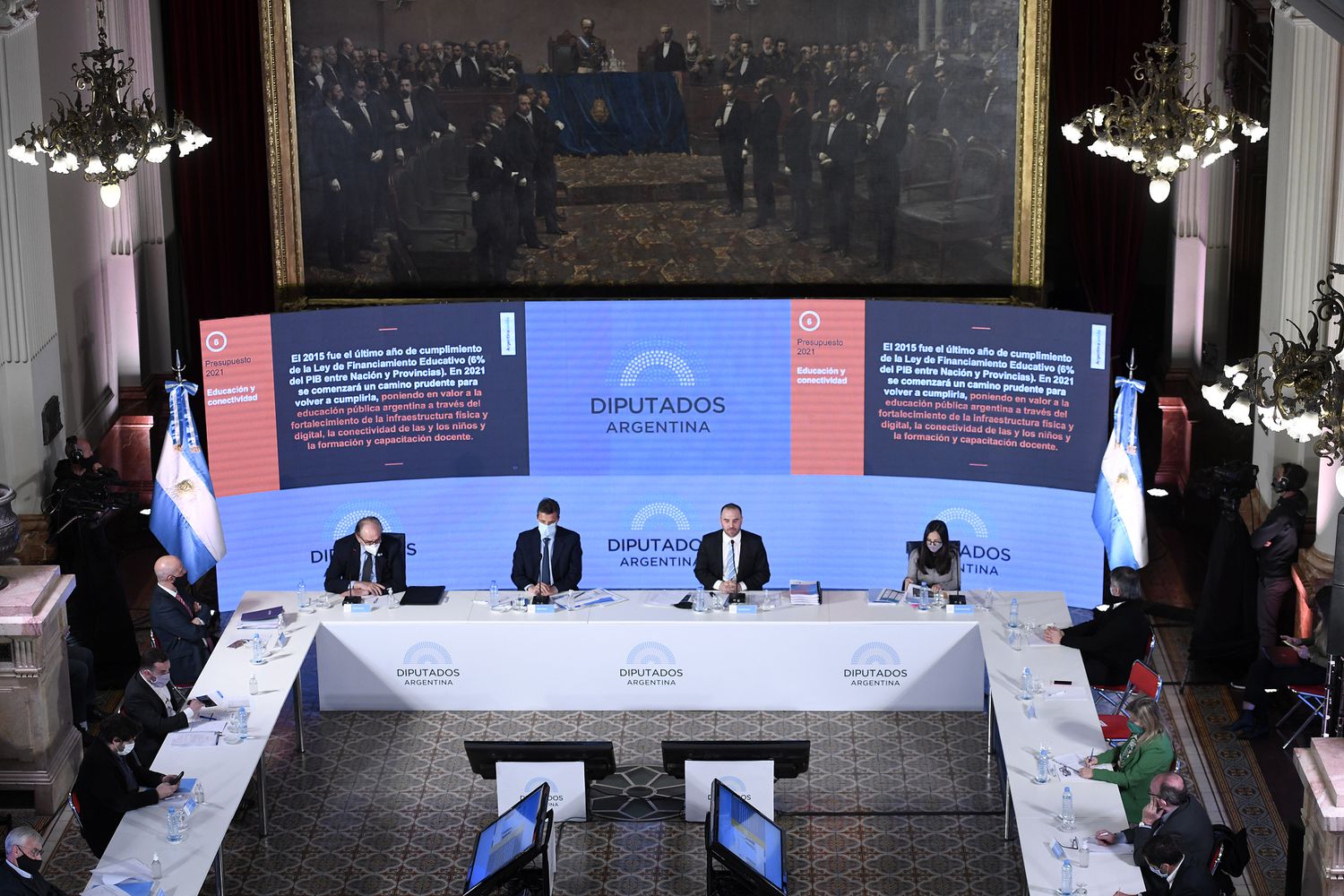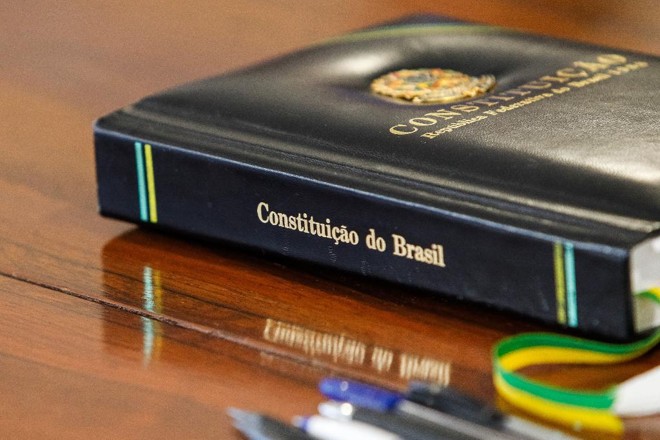Wilson Vieira, Economist by the Universidade Federal Fluminense (UFF-RJ), Master in Economic History and PhD in Sociology by the University of Campinas (Unicamp). Professor at the Institute of Economics at the Federal University of Rio de Janeiro (IE-UFRJ), and researcher in the Laboratory of Marxist Studies (LEMA/UFRJ) and in the Laboratory of Hegemony and Counter-Hegemony Studies (LEHC/UFRJ).
We have experienced an economic recession since 2015, which was aggravated in the years 2016-2018, and further worsened during the Bolsonaro government, mainly by the arrival and progress of the COVID-19 pandemic. Since the beginning of cases of the new coronavirus in Brazil and, consequently, the implementation of the necessary measures of social isolation (which were relaxed before the required time, according to several statements of infectious diseases doctors), the government did little and did not pay attention to the many proposals that could ensure the reduction and the end of the isolation policy, mitigating the economic impacts for the population in general.
With the objective of launching proposals to address the economic impacts of the pandemic, a large group of professors from the Institute of Economics (IE) of the Federal University of Rio de Janeiro (UFRJ) proposed, on March 17, 2020, several measures, which will be taken as a privileged object of analysis in this text. At the moment, this article intends, by exploring each of these measures, to take them as a guideline for a balance of the recent economic policies of Bolsonaro’s government. In its second part, we also seek to make a brief comparison between the Brazilian pandemic-economic situation and the international scenario, especially the policies carried out by the governments of France, the United States, and Argentina.
We now analyze the proposals of the economists at UFRJ.
First proposal: Expansion of benefits and income transfer programs for families, formal and informal workers who lost or had their ability to generate income decreased by the crisis, especially for families affected by the pandemic with school-age children, ensuring that they can remain with their parents.
The government proposed an aid of R$ 200 monthly which was increased to R$ 500 by the National Congress, and finally raised by R$ 100 after negotiating with the President of the Republic at the end of March, totaling R$ 600 (which can reach R$ 1,200 in cases that the woman is the sole responsible for the expenses of the house). The installments would be paid initially for three months (added two more last July) for indirect workers and individual, self-employed, and unemployed microentrepreneurs who met the following requirements: per capita family income of up to half minimum wage (R$ 522.50) or total family income of up to three minimum wages (R$ 3,135). The government extended the aid until December 2020, but with installments of less than R$ 600 (R$ 300). It is worth noting that there was a lot of difficulty in applying for this aid via its application, with several reports of fraud (people who did not meet the requirements received the aid).
Second proposal: Elimination of Bolsa Família’s queue and readjustment of the benefit.
There was no elimination of the program’s queue and no readjustment of the benefit, but the government proposed transforming the Bolsa Família Program into the Brazil Income Program, with payments of up to R$ 300 per month. However, due to conflicts between Bolsonaro and the economic team, which proposed to freeze the amount of retirement benefits and public social security aids to enable the program and not exceed the spending ceiling, the idea was discarded. Studies on how to put it into practice without exceeding the spending ceiling are still being carried out, which has proven difficult since it has been proposed to finance such a program from what is intended for precatory sums payments and the FUNDEB (a fund designed to maintain and develop basic education in the country), which has generated strong contrary reactions.
Third proposal: Recompose the health budget in relation to the constitutional minimums defined before the EC 95/2016 (the constitutional amendment which established the spending ceiling), and guarantee extra resources for the expansion of tests, beds, and acquisition of emergency equipment.
There was no recomposition of the funds in relation to the constitutional minimums defined before the EC 95/2016. According to data from the Ministry of Health (saude.gov.br) [1], in March and April 2020, the government allocated a total of R$ 14.3 billion to fight the new coronavirus; but, with the addition of the extraordinary credits, the resources total R$ 41.7 billion. Until August 2020, only R$ 17.9 billion (42%) were executed [2].
Fourth proposal: Recomposition of funds for Science and Technology, especially for areas capable of facing the pandemic, in order to ensure our ability to develop medicines and vaccines.
There was no recomposition, but the allocation of funds for the development, testing, and production of vaccines in agreements between Unifesp, Fiocruz, and the British pharmaceutical company AstraZeneca (which is developing a vaccine in conjunction with the University of Oxford), and the expansion of the vaccine factory [3]. At the state level, it is worth mentioning the tests coordinated by the Butantan Institute (University of São Paulo) of the vaccine developed by the Chinese laboratory Sinovac [4].
Fifth proposal: Amendment of other tax rules in force, in addition to the Golden Rule of Primary Surplus and the suspension of the Spending Ceiling, in order to create a legal space for the necessary policy of public spending expansion.
The National Congress approved the decree of public calamity for the year 2020, which allows the non-compliance with the fiscal target established for this year, as well as the suspension of the rules provided for in the Fiscal Responsibility Law. The constitutional amendment of the “war budget” was also approved, allowing the increase in the issuance of government bonds and the direct acquisition of National Treasury Securities by the Central Bank (BACEN). However, such measures do not extend to 2021. There are no initiatives, from the government and/or its support base, that question and/or propose the end of the spending ceiling (even a group of economists of orthodox and neoliberal inclinations has advocated the reduction of this ceiling [5]). Only sectors of the left opposition and a large group of economists of progressive orientation proposing the end of such a ceiling – because, according to them, it prevents the resumption of state investments that can make the economy resume growth [6] – are the ones more incisively questioning the EC 95/2016.
Sixth proposal: Suspension of fine, interest, and penalty on the late payment of utility bills.
At the national level, only the National Electric Energy Agency (ANEEL) deliberated in March 2020 on the suspension of supply cut in case of default on payments [7]. In Rio de Janeiro, for example, the State Water and Sewage Company (Cedae) also decided in March 2020 to suspend for 90 days the billing of the low-income population [8]. In the case of other services (telephone and gas, for example), no measure was taken in this sense.
Seventh proposal: Tax aid to states and municipalities, either through transfers from the federal government or by debt renegotiation, to allow subnational entities to increase their spending to face the medical emergency and its most immediate social impacts.
It was approved on May 2nd, 2020, by the Federal Senate, the financial [9] aid for states and municipalities of up to R$ 125 billion. It was sanctioned by the President Jair Bolsonaro on May 28 [10], but with the veto of salary adjustment to public servers until the end of 2021. In addition, a financial compensation of R$ 16 billion was allocated to the federative entities until November, by the Provisional Measure n. 938/2020, modified by deputies and senators [11].
Eighth proposal: Policies of credit expansion and debt extension using public banks, to help the companies and families most affected by the pandemic.
Despite the pressure from part of the business community (micro, small and, mainly, medium businesspeople) for the deferral in the payment of taxes, the government did little, having only postponed the payment of the federal part of companies that had opted for the National Simple, of limited scope [12].
As for the credit lines for the rescue of micro, small and medium-sized enterprises, there was only the allocation of R$ 1 trillion to banks that could allocate part of this amount to the creation of special credit lines for this sector, but which had little reach due to the many requirements to obtain the loan. Only in July 2020 did the government create a specific program for these companies, called the Working Capital Program for The Preservation of Companies [13], which, according to the Central Bank, can inject up to R$ 120 billion into the economy and facilitate the access to credit, reducing the requirements for entrepreneurs. To bail out families, each bank had a type of procedure – in general, debiting payments of home loans, lengthening loan payment terms, renegotiating interest are examples of the measures adopted. In terms of interest rates, there was a steady decrease in the Selic (special system for settlement and custody of Brazilian public securities) interest rate, reaching the level of 2% p.a., allowing a general reduction of interest in the economy.
From what we have analyzed, we can affirm that the government acted with measures of very limited scope to face the crisis, demonstrating the so-called “unviability” of the adoption of Keynesian economic policy measures, that is, with strong state intervention through the increase in public spending and more flexible fiscal and monetary policies, to prevent the economy from continuing in recession or into a depression. However, not because Keynesian economic policy measures are in fact unfeasible (hence the quotation marks), but due to a dogmatic option for the continuity of neoliberal and restrictive economic policies of economic activity, even though we observe a movement of a large number of countries (including those defenders of restrictive and neoliberal economic policies) in favor of increasing state intervention in their economies.
_________________
[4] https://br.reuters.com/article/idBRKCN24M2JL-OBRTP





